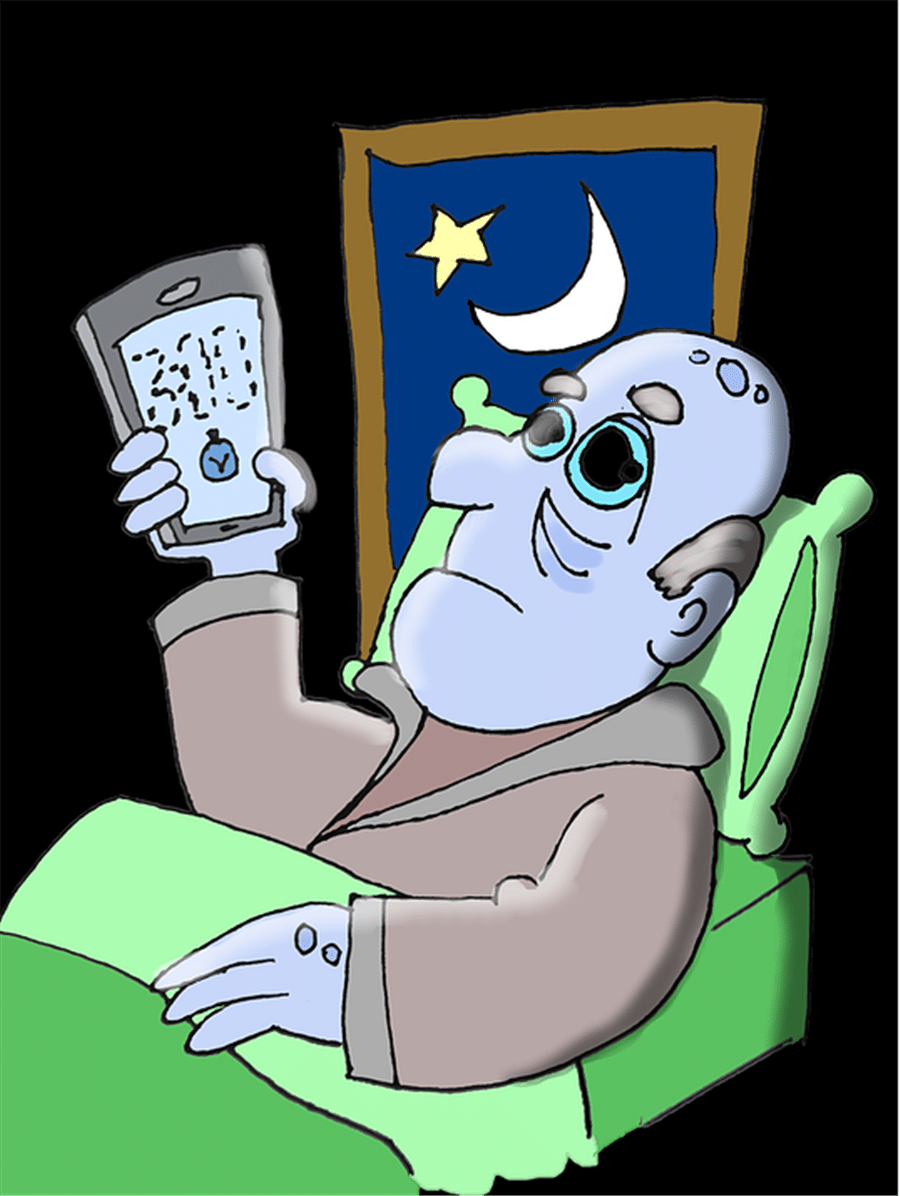Hypnosis for Insomnia and a Positive Mindset

How Do You Know You Have Insomnia?
During the current pandemic, many people have experienced disruptions to their sleep cycles. Lack of physical activity and increased stress levels can exacerbate this problem. Insomnia is a common sleep disturbance that makes it difficult to fall asleep, stay asleep, or causes early awakening with an inability to go back to sleep. When you wake up, you may still feel tired, which can drain your energy levels, affect your mood, and impair your overall well-being, work performance, and quality of life.
Identifying Insomnia
Acute vs. Chronic Insomnia
Many adults experience short-term or acute insomnia, lasting for days or weeks, typically as a result of stress or trauma. However, some individuals suffer from long-term or chronic insomnia, which persists for a month or more. Insomnia can be a primary issue or associated with other medical conditions or medications.
Symptoms of Insomnia
- Difficulty falling asleep at night
- Waking up during the night
- Waking up too early
- Not feeling well-rested after a night’s sleep
- Daytime tiredness or sleepiness
- Irritability, depression, or anxiety
- Difficulty paying attention, focusing on tasks, or remembering
- Increased errors or accidents
- Ongoing worries about sleep
Hypnosis for Insomnia: How to Shut Your Brain Off So You Can Sleep
National Co-Morbidity Survey-Adolescent Supplement
In a study involving 6,483 adolescents aged 13-18 years, symptoms of insomnia were identified in those who reported difficulty with sleep induction, maintaining sleep, and/or early morning awakening almost every day for at least two weeks in the previous year. About one-third of adolescents reported insomnia symptoms, with Hispanic and black youth more likely to experience these symptoms compared to non-Hispanic white youth.
Key Findings:
- Adolescents with insomnia had higher risks for mood, anxiety, behavioral, alcohol, and eating disorders.
- Insomnia was associated with severe illnesses, risk factors, and suicidal ideation, even in the absence of concurrent mental disorders.
- Effective treatment and further research are crucial for reducing insomnia symptoms and improving public health.
Breaking the Cycle of Waking Up in the Middle of the Night
Effectiveness of Hypnosis for Insomnia Treatment
This paper assessed the effectiveness of hypnosis and hypnosis-based techniques for treating insomnia. Hypnosis can address sleep-related concepts, including bedroom environment, sleepiness, closing of the eyes, and deep sleep. It is used both as a method of sleep induction and to address underlying problems causing insomnia.
Study Comparison:
- A group of 45 individuals with insomnia was compared using stimulus control and placebo approaches.
- Subjects undergoing hypnosis therapy received sleep hygiene instructions, enhancing the impact of hypnosis.
Techniques Used:
- Description and practical demonstration of hypnotic induction
- Relaxation techniques in hypnosis
- Development of sleep-related mental images
Results:
- Significant improvement in sleep patterns after one or two sessions.
- Improved sleep latency, faster onset of sleep after waking, and more refreshing sleep.
- 46% of participants reduced medication usage.
- 53% felt less stressed about the quality of their sleep.
Sleep Hypnosis: Confidence and Success for Men & Women
Gender Differences in Insomnia and Trauma
Women are more likely to develop psychiatric conditions, including insomnia and nightmares, following traumatic stress. Men also experience these problems, influenced by unique genetic factors and severe trauma. Many men do not seek therapy for depression or suicidal thoughts, exacerbating sleep disturbances.
Post-Traumatic Stress Disorder (PTSD) and Insomnia:
- PTSD is a common cause of sleep disturbance.
- High cortisol levels from trauma can trigger nightmares and bizarre sleep problems.
- Vietnam veterans with PTSD reported worsening sleep problems and a sense of urgency for treatment.
Treatment Approaches:
- Non-Benzedrine hypnotics like zolpidem and eszopiclone are commonly used.
- Hypnotherapy has shown potential benefits for trauma-related sleep disturbances.
Increasing Sleep Quality
Randomized Controlled Trials
Eszopiclone:
- Increased sleep quality and shortened sleep duration in civilians with PTSD.
Zolpidem vs. Hypnotherapy:
- Zolpidem was less effective than hypnotherapy in improving sleep quality and reducing sleep disturbance in PTSD male war veterans.
Understanding Insomnia’s Pathophysiology
A greater understanding of insomnia’s underlying mechanisms could provide important information and possible objectives for prevention and treatment. Clinical hypnotherapy for sleep hypnosis continues to lead the alternative health industry as a viable treatment method for persistent sleep problems and associated insomnia.d issue that can significantly impact one’s quality of life. Identifying the symptoms and understanding the difference between acute and chronic insomnia is the first step toward effective treatment. Hypnosis, combined with cognitive-behavioral strategies and proper sleep hygiene, offers a promising approach to breaking the cycle of insomnia and improving sleep quality. By addressing both the psychological and physiological aspects of sleep disturbances, individuals can achieve better rest and overall well-being
In the National Co-morbidity Survey-Adolescent Supplement, a total of 6,483 persons aged 13-18 years were included in the study. Insomnia symptoms were identified in participants who reported sleep-induction difficulty, sleep-related difficulty and/or early morning wakening almost every day during the previous year for at least two weeks. About one-third of adolescents reported symptoms of insomnia during the past year for a period of two weeks. Hispanic and black youth are much more likely than non-Hispanic white youth to show insomnia symptoms.
The risk for all types of mental illnesses, including mood, anxiety, actions, alcohol and eating disorders, depression, misperceived mental health, chronic medical conditions, and cigarette smoking was higher for teenagers with insomnia symptoms. Teenagers with insomnia and mental disorders reported higher rates of these negative health and condition measures than those with mental disorders alone.
Researchers concluded that one-third of adolescents in the general population are reporting symptoms of insomnia. The symptoms of insomnia are associated with severe illnesses, risk factors, and suicide even when there is no concurrent depression or other mental disorders. A further review of causes and successful treatments can have a huge impact on public health to reduce insomnia symptoms.

The insomnia ideas usually relate to all sleep-related concepts, including bedroom, sleepiness, shutting of the eyes, asleep and deep sleep. This allows hypnosis, in addition to the mere symptomatic treatment that is used for other types of hypnotherapy, to be used as both a method of sleep induction / self-introduction and a way of accessing problems that may determine insomnia.
This study compared the stimulus regulation and placebo approach in a group of forty-five individuals with insomnia to show hypnosis supremacy. Furthermore, the subjects subjected to hypnosis therapy have received sleep hygiene instruction in this case, which may have enhanced the impact of hypnosis.
Hypnosis for Anxiety
Sleep improved after one or two sessions for most subjects. The technology used included the description of hypnosis, practical evidence of hypnotic induction, relaxation techniques in hypnosis, and development of the notion of sleep-related mental images.
The study concluded that sleep patterns improved significantly. This improvement includes a better latency in sleep, a faster onset of sleep after waking at night and a more refreshing and energized feeling on awakening in the morning. Moreover, 46% reported that they a reduction in their medication usage, and 53% report that they were less stressful about the quality of their sleep. This study is small in comparison to those that have been done on sleep inertia; however, they did show that all of the measures were positively in correlation to decrease sleep inertia.
Sleep Hypnosis Confidence and Success for Men & Women
Women are more likely to develop symptoms of certain psychiatric conditions including insomnia and nightmares following exposure to traumatic stress than males. This is not to say that men don’t experience these same types of problems, but they are also subject to their unique genetic factors and the severe trauma experienced by males during their lives. As a result of the complex and inter-related factors, many men don’t turn to therapy when they become depressed or suicidal because these problems tend to strike one at a time.
One of the most refractive side effects of post-traumatic stress disorder is sleep disturbance or insomnia. There are many mechanisms for this symptom, but sleep disturbance is probably one of the best in definition because it is repeatable when having the experience while in a dream state. Relatedly, sleep disturbance is in association with higher levels of cortisol.
The higher the cortisol, the greater the nightmare-like nightmare effect of trauma. Crazier sleep problems, however, occur in people who had no past or subsequent trauma, and these happen despite the presence of high levels of cortisol. This is the paradox: trauma triggered high levels of cortisol can trigger bizarre, expensive nightmares.
What Does it Mean When You’re Tired, but Can’t Sleep?
In a study of Vietnamese women, 73% of PTSD and 62% of those without PTSD recognized sleep disorders; 91% of PTSD vet compared to 59% for those without PTSD reported sleep disorders. However, all of the Vietnam veterans reported their sleep problems having “worsened throughout the war” and this diagnosis “can only be attributed to the effects of PTSD.” Also, 58% of all veterans “feel a sense of urgency to seek treatment for insomnia.” While this can be helpful, most find “it is important, but not enough of a factor in finding the appropriate treatment.”
According to this theory, female sexual assault survivors, especially those with PTSD, have documented a quieter, healthier and more relaxed experience of the laboratory environment than home. It is important to note, however, that participants with PTSD indicated they felt comfortable in the sleep lab environment, a finding consistent with other research.
The widely used anxiety medicine of the US general population, as well as of PTSD veterans is anxiety medicine. This included non-Benzedrine hypnotics like zolpidem and eszopiclone as a treatment for insomnia. Evidence of its efficacy in the treatment of sleep disorders is minimal in PTSD, despite its popularity. Our literature review provided only a dual-blind RCT which showed potential benefits to trauma-related sleep disturbances from non-Benzedrine hypnotics.
How Can You Increase Sleep Quality?
Eszopiclone had increased sleep quality and shortened sleep duration compared to placebo in this randomized controlled trial in civilians with PTSD. In contrast, Zolpidem was less effective than hypnotherapy for improving sleep quality and reducing sleep disturbance in a clinical trial of PTSD male war veterans comparing Zolpidem and hypnotherapy as a supplemental treatment with an SSRI.
While we have made progress in our understanding of the nature, etiology, and pathophysiology of insomnia, no universally accepted model is yet established. A greater understanding of insomnia’s pathophysiology could provide important information as well as possible objectives for prevention and treatment as to how and in what conditions the disorder develops and remains.
Clinical hypnotherapy for sleep hypnosis confidence and motivation continues to lead the alternative health industry as a viable method of treatment for those that continue to have their sleep problems and associated insomnia persist.


